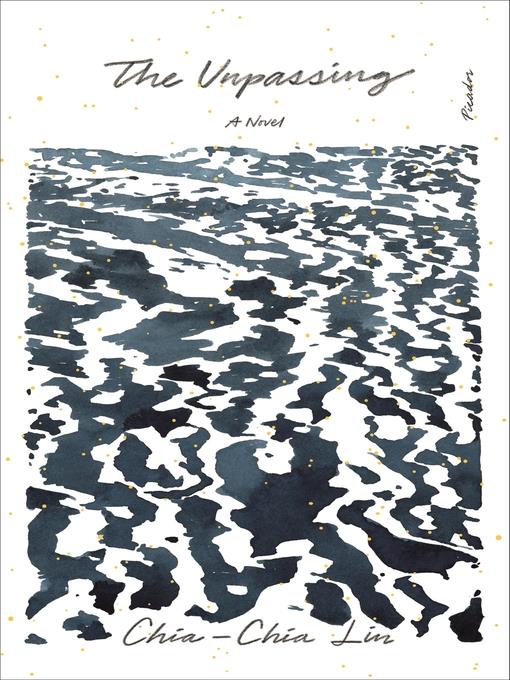
The Unpassing
A Novel
کتاب های مرتبط
- اطلاعات
- نقد و بررسی
- دیدگاه کاربران
نقد و بررسی

February 15, 2019
In this debut novel, a Taiwanese-American family 30 miles outside Anchorage struggles to live after the death of their youngest daughter.Ten-year-old Gavin loses consciousness after he comes home from school sick, the day before the Challenger launch is broadcast on TV. When he comes to a few days later, his world has been wrenched apart: Every astronaut on the shuttle is dead--and so is his 4-year-old sister, Ruby, who contracted meningitis from him. Immediately, Gavin is saturated with a guilt he doesn't know how to express: "The heaviness on me was like dread. But what came after dread? What was on the other side of it, once a thing was done, done, and done, and dread had thickened into something solid?" His other family members, including 5-year-old brother Natty and older sister Pei-Pei, treat each other with a quiet kind of violence, and the rift between his parents expands. His mother wants the family to move back to Taiwan, where she and his father grew up; his dad, an insubstantial man who drills water wells and repairs septic tanks, maintains his innocence when sued by a family whose child was poisoned by a well he worked on. The lawsuit, grasped only hazily by the children, threatens to drain the family's savings and evict them from their home. The novel is full of harsh beauty, both in its prose and its attentive depictions of an ever shifting Alaskan environment, all frigid air and Sitka spruces and vast, treacherous mudflats. Death is omnipresent, from a tree that nearly falls on Pei-Pei to the flying squirrel skeletons the family clears from their attic, as well as a sense of constant, oppressive emptiness. "It was impossible to erase the feeling of the unoccupied parking spaces around us. So many freshly painted rectangles and no cars. To one side was an empty building, to the other, empty roads." The book's main mood is one of intense suffocation: Gavin's family is completely unable to communicate, and events pile up, disjointed and without explanation. The family doesn't belong, the novel makes achingly, physically explicit: not to the community, where they stick out because of their race and lack of money, and not to the land, which is unwelcoming to any form of life.Unremittingly bleak.
COPYRIGHT(2019) Kirkus Reviews, ALL RIGHTS RESERVED.

April 29, 2019
In Lin’s challenging debut, set in rural 1986 Alaska, a Taiwanese-American family struggles to cope with the loss of their youngest member. A week after the Challenger explodes, 10-year-old Gavin wakes up from a meningitis-induced coma, only to realize that his younger sister, Ruby, didn’t survive the illness. In the months that follow, the family slowly disintegrates. When not fighting with her husband, Gavin’s mother talks incessantly about taking their remaining three children and moving back to Taiwan. Gavin’s father, a water well driller, becomes despondent and erratic, staring into space or sawing holes in the ceiling to squelch a flying squirrel infestation. When he’s sued by a white family whose child became severely ill from an improperly installed water well, the ill-equipped and penniless parents run from the situation. They take the children and go on a “vacation” in the Alaskan boonies, forcing Gavin, his five-year-old brother, Natty, and their older sister, Pei-Pei, to sleep in the truck with the rest of their scavenged belongings. Upon their return to the repossessed house, the family squats in the eerie, empty shell as winter sets in—that is, until yet another catastrophe shatters the little they have left. The unrelenting bleakness of the novel might be too much for some readers, but Lin’s talent for vivid, laser-sharp prose—especially when describing Alaska’s stark beauty or the family’s eccentric temperament—is undeniable. (May)
Correction: this review incorrectly stated a character had died.

Starred review from March 1, 2019
Lin's stunning debut novel opens with a recollection: Gavin remembers that once when he was little, his mother feigned death just to see how her children would react. This vignette is like a prophecy. Pages later, an 11-year old Gavin becomes sick and, upon waking, learns that one of his sisters has died from the same illness. Bookended by adult Gavin's search for a sense of belonging, The Unpassing is the story of a Taiwanese family dealing with grief and guilt in 1980s Alaska. With powerful and poetic prose, Lin captures the uncertainty and insight of childhood. Gavin observes his teenage sister try to assimilate, adopting the name Paige instead of Pei-Pei, and his little brother, Natty, desperately search for their lost sister, even mistaking the squirrels that live in their attic for her ghost. Meanwhile, their parents grow increasingly estranged, and as their anger fills the house, Gavin, Pei-Pei, and Natty retreat into the surrounding woods. Enchanting and mysterious, Alaska's trees, wind, and water seem always on the verge of eating them up, until finally the landscape nearly does. Lin's majestic writing immerses the reader in the bodily experience of her characters, who writhe, paw, dig, salivate, and draw readers into their world.(Reprinted with permission of Booklist, copyright 2019, American Library Association.)

























دیدگاه کاربران